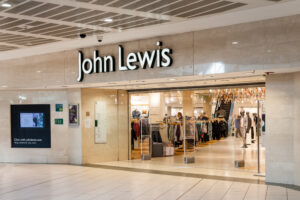After 97 years John Lewis is ditching its “never knowingly undersold” price pledge after admitting that it was no longer suitable in the era of online shopping.
The department store chain has been considering scrapping the price-matching promise, which only applied to its bricks and mortar rivals, ever since Dame Sharon White took over as chairman of the employee-owned business shortly before the pandemic.
The price promise was introduced in 1925 when John Lewis had two shops and allowed its product buyers to check the prices of nearby competitors. It has been criticised, however, as largely irrelevant for modern day shoppers, particularly since John Lewis has said that 60 to 70 per cent of its sales are now online.
The company said: “Never Knowingly Undersold is no longer enough to assure trust because it applies to fewer and fewer sales as shopping moves increasingly online, and isn’t applicable to online-only retailers.” It said that less than 1 per cent of its customers actively had made price match requests last year.
John Lewis now has 34 department stores employing 20,000 staff, its grocery business, Waitrose, employs 55,000 across 331 shops and there are a further 6,000 in head office.
Nick Bubb, an independent retail analyst, said that the decision to end the price-matching mantra was long overdue. “A policy devised back in 1925 was hardly likely to last long into the internet age and nobody quite understood what it meant anyway,” he said.
The price-match had dented John Lewis’s profits when its struggling rivals, such as the now online-only Debenhams and House of Fraser, were running endless discounts to drive up sales.
Last year White had said in an interview: “The proposition is important because it signifies being fair to society. We’re reviewing it to improve it.”
The company said that it was planning to replace the price pledge with a “quality and value” slogan and was investing £500 million in lowering prices to become more proactively competitive on price, rather than reacting to other retailers’ price changes. The investment is a quarter higher than the amount it spent on affordable prices last year, partly through the creation of the budget-friendly Anyday homewares and clothing brand. The business said that after the new label, which includes £6 T-shirts and £5 cushions, had made £125 million in sales and would now be extended to swimwear, childrenswear and outdoor furniture.
Pippa Wicks, executive director of John Lewis, said: “Customers are tightening their belts and we’re responding so John Lewis is more affordable for every customer, every day whether shopping in-store or online. Never Knowingly Undersold has been a cherished sign of trust for John Lewis for a century but it doesn’t fit with how customers shop today as more purchases are made online. Our new £500 million investment means all our customers can trust they’re getting the quality, style and service they expect from John Lewis at great value prices.”
The John Lewis Partnership, which includes Waitrose, has been grappling with losses, which have culminated in the closure of 16 department stores since the start of the pandemic and the cancellation of staff’s cherished annual bonus for the first time in 67 years.
A recent leaked report suggested that the business had had a bumper Christmas trading performance with profits “well ahead” of its £100 million target, fanning hopes that its staff bonus could be reinstated. The group will report its annual results on March 10 when it could also give further details of its plans to generate 40 per cent of profits outside of retail by 2030 and make £400 million of profits within the next five years.
Read more:
John Lewis drops Never Knowingly Undersold price pledge














